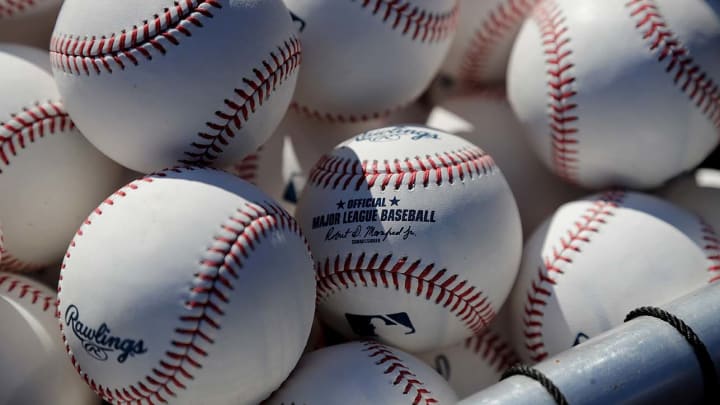MLB, Union Agree to Opioid Testing After Tyler Skaggs' Death


SAN DIEGO — Major League Baseball will start testing for opioids and cocaine, but only players who do not cooperate with their treatment plans will be subject to discipline.
Marijuana will be removed from the list of drugs of abuse and will be treated the same as alcohol as part of changes announced Thursday to the joint drug agreement between MLB and the players’ association. In addition, suspensions for marijuana use will be dropped from the minor league drug program.
Opioids are classified as a drug of abuse under the joint big league program, which began in late 2002 and until now has limited testing to performance-enhancing substances and banned stimulants.
Talks to add testing for opioids began following the death of Los Angeles Angels pitcher Tyler Skaggs, who was found dead in his hotel room in the Dallas area July 1 before the start of a series against Texas. A medical examiner's office said the 27-year-old died after choking on his vomit with a toxic mix of alcohol and the painkillers fentanyl and oxycodone in his body.
"Players from our side of the equation recognize that there was an opportunity to take a leadership role here in this discussion," union head Tony Clark said. "Players aren't immune to issues that affect all of us, and so the situation this year only heightened that, brought it even closer to home."
Clark said the extent of opioids use among players is "difficult to gauge" and the union concluded there "wasn't necessarily a need to take a census as much as there was taking a leadership role in the conversation."
"I'm just thankful that the players union and MLB were able to address a serious issue in our nation that doesn't have any boundaries and crosses lines into sport and work together for the betterment of our players," Angels general manager Billy Eppler said. "It shows a lot of human touch on the powers that be and I'm thankful for it."
Under the changes, MLB will test for opioids, Fentanyl, cocaine, and synthetic Tetrahydrocannabinol (THC). Players who test positive will be referred to the treatment board established under the agreement.
"It is our collective hope that this agreement will help raise public awareness on the risks and dangers of opioid medications," deputy baseball commissioner Dan Halem said.
Until now, big league players referred to the treatment board who failed to comply with their treatment plan for use or possession of marijuana, hashish or synthetic THC had been subject to fines of up to $35,000 per violation. Going forward, marijuana-related conduct will be treated the same as alcohol-related issues, and players generally referred to mandatory evaluation and voluntary treatment.
Players and team staff will have to attend mandatory educational programs in 2020 and 2021 on the dangers of opioid pain medications and practical approaches to marijuana.
Moves by some states to legalize marijuana use factored into the change.
"It was a part of a larger conversation that was reflective of the attitudes changing in many parts of the country," Clark said.
Players subject to the minor league testing program, who are not on 40-man rosters and not covered by the union, were suspended until now for a second or subsequent positive marijuana test. Halem said the big league and minor league programs will treat marijuana use the same way going forward.
"The minor league program obviously affects a number of our PA members every year because we have a number of guys who sign major league contracts, then wind up finding themselves removed from the 40-man roster during the course of the year," Clark said. "So this was something that, again, as part of the discussion for the overarching baseball player community, was important."
